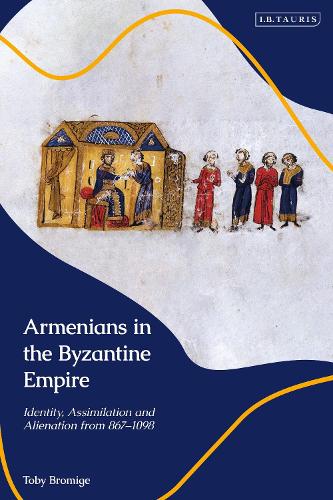
Armenians in the Byzantine Empire: Identity, Assimilation and Alienation from 867 to 1098
(Hardback)
Available Formats
Publishing Details
Armenians in the Byzantine Empire: Identity, Assimilation and Alienation from 867 to 1098
By (Author) Toby Bromige
Bloomsbury Publishing PLC
I.B. Tauris
19th October 2023
United Kingdom
Classifications
Tertiary Education
Non Fiction
956.62013
Physical Properties
Hardback
208
Width 162mm, Height 238mm, Spine 18mm
440g
Description
The role of Armenian peoples in the Byzantine Empire has long been identified; they served as soldiers, generals, priests, with some later descendants even rising to the throne. This book investigates the relationship between the Armenians and Byzantines more closely, arguing that up until the eleventh century migrants of Armenian background were able to fully assimilate into the Empire, recognized fully as Romaioi (Byzantine Romans). Using the extant sources and material culture the book explores in a chronological approach migration, ethnic stereotypes, and cultural assimilation to bring to life the experiences of Medieval Armenians as they settled into their new home. A close study of the role of religion in the forming of identity reveals that initial differences in belief between the Byzantines and Armenians was not a major stumbling block. From the turn of the eleventh century however, migrating groups of Armenians resisted the process of assimilation, holding onto their ancestral and religious identity, viewing the Byzantines with suspicion. This book charts for the first time this downturn in relations, which would go on to have dire consequences in the late eleventh century when Byzantium faced its most severe crisis since the seventh-century, the arrival of the Turkic peoples in Anatolia.
Reviews
This is an exploration of another Byzantium, viewed not through the usual lens of Greek Orthodoxy and Hellenic culture, but through the Armenian princes and soldiers who first submitted to their powerful neighbour and integrated themselves into its society, then later separated and founded a state of their own. * Professor Jonathan Harris, Royal Holloway University of London, UK *
Author Bio
Toby Bromige is Visiting Lecturer at City, University of London. He holds a PhD from Royal Holloway, University of London.
